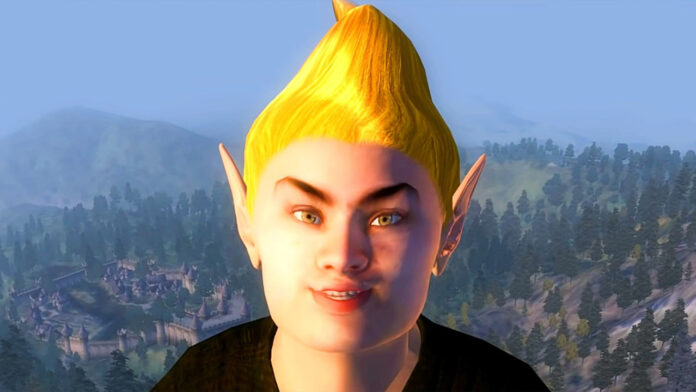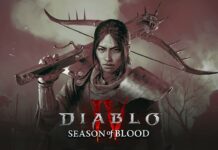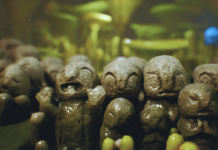The term NPC has a long and storied history, one that has taken it from the digital realms of video games to the bustling streets of social media platforms
NPC meaning in games
NPC is an acronym that stands for Non-Player Character (or Non-Playable Character). The term originates from the sphere of video games, where it was used to refer to characters controlled by the game’s AI (artificial intelligence) rather than by a human player. These characters often served to flesh out the world of the game, provide quests or challenges, or act as shopkeepers, adversaries, and allies. They were a crucial part of the narrative fabric, designed to make the player’s experience richer and more immersive.
In early games, these NPCs were typically flat and two-dimensional, both in terms of their pixelated graphics and their character depth. Their dialogue was usually pre-scripted, lacking in dynamic responses, and thus, they could often feel robotic, devoid of the spontaneity and unpredictability that represent human interaction. This ‘robotic’ characterisation is the core of the NPC meaning in games and in real life.
NPC meaning in real life and internet slang
Interestingly, as the gaming culture seeped into mainstream society, the term NPC began to take on a new life beyond the confines of our consoles and computers. It was no longer limited to the digital characters in games; it started being used to describe real-life people who, like their gaming counterparts, displayed a lack of individuality, and critical thinking, or simply followed social norms without questioning them. Thus, the NPC meaning in real life took on a more social and cultural dimension, often used as internet slang with slight derogatory undertones.
Examples of NPC memes and trends
The term’s popularity skyrocketed when it began being used in memes on platforms like TikTok, YouTube, Facebook, and Instagram. The NPC meme typically portrays mundane or awkward interactions with people, matching them to the unnatural, pre-programmed encounters with NPCs in video games, but can also be creative, scripted, and entertaining videos. Here are some notable examples of NPC memes and trends.
Oblivion NPC memes
A popular trend emerged where creators edited filmed awkward social public interactions, often out of context or downright weird, and added a soundtrack from a video game – notably from The Elder Scrolls Oblivion – before labelling the video as an “NPC encounter”. Oblivion, being known for its somewhat quirky and often awkward NPC interactions, became the perfect backdrop for this meme, adding an extra layer of humor and relatability for the gaming community. Here’s a compilation video of real-life NPCs roaming the streets on a relaxing soundtrack from Oblivion titled Harvest Dawn. Doesn’t it sound just peachy?
The NPC meaning on TikTok and other social media platforms has, in essence, become a reflection of the original gaming term but with a twist of real-life absurdity. This phenomenon demonstrates how gaming culture has not just permeated everyday life but has also influenced the way we communicate and express humor.
NPC parodies on social media
Loczniki – a Polish couple of professional dancers and social media influencers, brought the NPC trend to a whole new level with their funny portraits of Non Playable Characters interactions with the real world. Their videos gathered in total hundreds of millions of views on platforms like YouTube, Tik Tok, and Instagram. Here’s a glimpse into their NPC universe:
The Grand Theft Auto series, especially San Andreas, was also a source of inspiration for memers around the world, who created funny social media videos depicting real-life interactions in the style of video game characters with robotic body animations and clumsy exchanges with people and objects.
Kommander Karl is a YouTuber that focuses on gaming comedy which also covers NPC memes sometimes just like in this funny video of his, showcasing signs that you might be an NPC. He’s also known for doing POV reload animations with household objects.
From gaming to internet virality: The evolution of NPC
What started as a term to describe computer-controlled characters in video games has become a significant cultural meme that both gamers and non-gamers alike can appreciate. The NPC meaning has evolved and expanded, much like the video games it was born from, and has found a home in the lexicon of internet culture.
Through its transition from gaming to social media platforms, the term NPC has retained its core meaning – a character or person that seems robotic or devoid of individuality. However, it has also taken on additional connotations, often used to satirize social norms or highlight the absurdity of everyday life. The term encapsulates our collective experiences, both in the virtual worlds of video games and the often equally bizarre world of reality.
As we continue to embrace and blend digital and physical experiences, terms like NPC will undoubtedly continue to evolve and shape our societal language. This evolution of language, a crossover from the digital to the real, is a testament to the profound impact that video games have on our culture.
NPC: A Social Commentary
One could argue that the NPC meme serves as a form of social commentary, highlighting the often robotic and repetitive nature of modern life. The meme is not just about the humorous recognition of real-life encounters as if they were in a game. It also underscores how many of us can fall into patterns of behavior that lack spontaneity or individuality, much like the programmed responses of game NPCs. Or it could be just a funny trend, who really knows…
Beyond the Meme: NPC and the Gaming Community
Beyond its meme status, the NPC term holds great significance within the gaming community. As games have become more sophisticated, so too have NPCs. Modern games often feature NPCs with complex personalities and storylines, breaking away from the flat, robotic characters of early games. These advancements have not only enhanced the gaming experience but also elevated the role of NPCs, making them an integral part of the narrative.
An exemplary demonstration of this can be seen in InWorldAI, an innovative software technology that aims to enhance the depth of Non-Player Characters (NPCs) in video games. This AI system seeks to transform these characters into more complex entities, characterized by distinctive personalities and diverse reactions. The prospect of a video game effectively integrating such an advanced AI system for its NPCs, and the subsequent impact on its narrative and gameplay, is undeniably intriguing. In the meantime, YouTuber 2kliksphilip provides a humorous glimpse into the potential of InWorldAI through an engaging demo video.
Conclusion: NPC – A term transcending its boundaries
As we navigate the digital age, the line between virtual and physical worlds continues to blur. The evolution of the term NPC perfectly encapsulates this journey. From its humble beginnings in the gaming world to becoming a viral social media meme, the NPC term has transcended its original boundaries.
At its core, NPC serves as a humorous and often poignant reminder of our immersion in the digital age, highlighting the interplay between our gaming experiences and everyday life. As gaming continues to influence our culture and communication, we can expect the NPC term and its derivatives to keep evolving, creating new meanings, and sparking conversations.
In the end, the journey of the NPC meaning from video games to internet slang is a compelling example of how our shared digital experiences can influence and reshape our language and culture in unexpected and often delightful ways.



